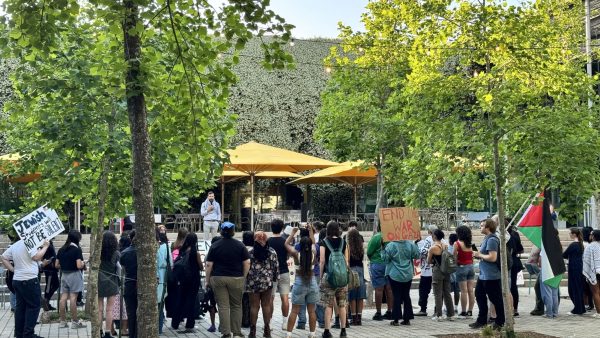New Orleans art center brings attention to Syrian refugee crisis, alternative therapy
October 5, 2016
This is an opinion article and does not necessarily reflect the views of The Tulane Hullabaloo.
Approximately five years ago the Syrian refugee crisis became deemed such and millions of refugees—over 4.8 million so far—have been displaced from their homes. As they are forced to leave, these refugees are experiencing various forms of mental trauma. It is the world’s responsibility to bring attention to the mental distress of refugees and work to alleviate it.
On Tuesday, Sept. 27, the Contemporary Arts Center held a discussion on the current refugee issue. The event, titled “Conversation: The Syrian Refugee Crisis and the Trauma of Displacement,” discussed how refugees experience various forms of mental distress and potential treatment. More specifically, the speakers focused on how younger refugees can use art as a method to help cope with the trauma of displacement.
One member of the panel at this lecture was former Tulane professor of psychology Dr. Shereen Naser. Her role was to discuss the displacement of Syrians from a psychological perspective and contribute her knowledge of the effects of displacement on children and community efforts to correct mental health issues.
Naser has previously done research in New Orleans, where she studied the effects of displacement following Hurricane Katrina. She found that those displaced due to the hurricane developed symptoms of Post Traumatic Stress Disorder, depression and other adverse mental health effects. These symptoms are similar to what Syrian immigrants are facing due to the forced exodus from their homes.
An additional aspect of the lecture was how beneficial art therapy is. Art therapy is commonly utilized by therapists when their patients cannot explain events in words. The subject expresses their thoughts through drawings, paintings or some other type of art. It gives both the subject and therapist an idea of what they are feeling.
This lecture and Naser’s contribution is bringing attention to the refugee crisis to a community that may not view it as a priority. More specifically, they are attempting to fight the mental health stigma in our society.
Others should be doing what the Contemporary Arts Center is doing for New Orleans. It is paramount that we start a dialogue about mental health in various contexts, not just affecting white Americans. We cannot neglect such issues on a global scale when there are millions of refugees experiencing trauma. We can do more good if we put aside the politics of the refugee crisis to help migrants in need of mental health services.
Daniel is a junior at Newcomb-Tulane College. He can be reached at [email protected].





















Leave a Comment